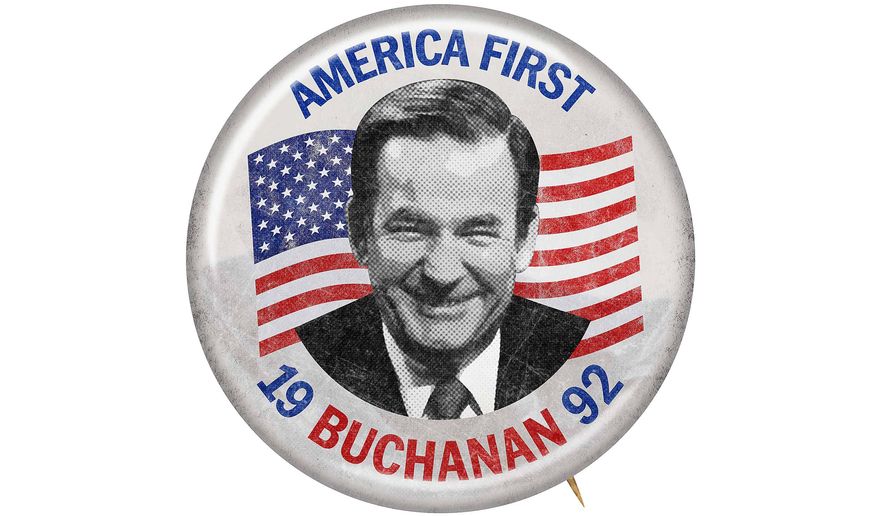OPINION:
Conservatives frequently butted heads with Bush ’41, but most of us rejoiced with the rest of the country in celebrating his spectacular life story. World War II Navy
fighter pilot (joined right out of high school), CIA director, diplomat, VP and a scandal-free presidency.
He had some policy plusses as well. Some on the right sharply criticized the first Gulf War, but those of us with sons and daughters in the battle zone, skin
in the game, so to speak, think Mr. Bush and his team did a marvelous job in conducting that war.
The president’s coalition building, the brilliant air campaign and a furious ground war that lasted just 100 hours forced Saddam Hussein to abandon those oil fields he had seized in Kuwait that could have made this aggressive and brutal dictator an outsized threat to the Mideast. Combat casualties, gratefully, were under 150. (The devastation of Iraq’s military capability was such that when W invaded Iraq 12 year later, the allies could still not find a significant threat from the weapons of
mass destruction intelligence agencies from around the world said Saddam possessed.)
And though Ronald Reagan broke the back of the Evil Empire, the Bush national security team presided over its last days with relatively little trauma. Mr. Bush also handed conservatives a major domestic gift: The elevation of Clarence Thomas to the Supreme Court.
But the president was still ripe for a primary challenge. He had broken his solemn oath that he would never raise taxes, seemed indifferent to the culture wars, favored racial quotas and had no real stomach for reducing the size of the federal government. So Human Events, which had been Ronald Reagan’s favorite publication and was edited and owned by Tom Winter and the author, decided to fully support Pat Buchanan’s run for the White House.
Pat, finally conceding “celestial intervention” was his only hope, bowed out of the race in March of 1992. He had lost 19 primaries, but he had given his supporters a wonderful ride for their money. Back in December 1991, when Pat first announced, the cynics scoffed that a controversial conservative columnist could possibly do well against an elected president who only a few months before held an 80 per cent approval rating.
Yet Mr. Buchanan worked wonders with his brigades, his message and his attack ads. And the president, as we had hoped, kept yielding each time Pat put on the pressure. The scenario went something like this: Pat Buchanan enters the race assailing the president for reneging on his “no new taxes” pledge,” calls for a major capital gains tax cut, suggests a freeze on federal spending and bawls Mr. Bush out for imposing heavy regulatory burdens on the economy. He also calls for increasing the personal tax exemption for children.
Mr. Buchanan scores big in New Hampshire, scaring the heck out of the Bush White House. Just two weeks later, on the eve of the Georgia primary, Mr. Bush, who had been stoutly defending ditching his no new taxes pledge, now tells The Atlanta Constitution that the tax increases in his 1990 budget were his “biggest mistake.” Mr. Buchanan also runs ads in Georgia that the National Endowment for the Arts has been “investing our tax dollars in pornographic and blasphemous art,” a charge he had leveled in February as well. Poof! NEA chief John Frohnmayer is fired and lambastes Mr. Buchanan for forcing his departure. Even liberal commentators Sam Donaldson and Cokie Roberts appear to side with Pat. With Mr. Buchanan hitting the social issues hard, Mr. Bush now calls for voluntary prayer in the public schools.
Indeed, every time Mr. Buchanan decides to raise an issue, Mr. Bush appears to give ground. Mr. Buchanan took a beating in Michigan, partly because the Bush people had great fun pointing out that “Buy American Pat” owned a Mercedes. Mr. Buchanan deserved the shot. But even in losing, Pat managed to squeeze the president in a conservative direction.
A key part of Mr. Buchanan’s campaign had been his demand for suspension of regulations that he argued were crippling the automobile industry. And guess what? Just four days before the Wolverine state’s primary, Mr. Bush said he would not require manufacturers to install certain pollution control devices on new cars.
Even before folding his tent, Time magazine granted: “Give Pat Buchanan this much: he has propelled himself out of the ’Crossfire’ thunderdome [referring to his TV program] and into the first tier of GOP hopefuls in 1996. He has jerked a nervous President hard to starboard and roused the Bush-Quayle from complacency.”
In his State of the Union speech, Mr. Bush made reducing high taxes a central portion of his speech, insisting the Cold War’s end would mean tax cuts for the average American, including a 50 per cent cut in the capital gains tax. ( Pat charged, not unfairly, that the Bush campaign had been engaging in “intellectual property theft.”}
Mr. Buchanan stirred up some new issues for the party as well: Ending illegal immigration, ensuring foreign trade would no longer hollow out our industrial base and calling for “An American First” foreign policy which would reduce the country’s commitments around the world. Those issues, of course, would be pocketed in some form by Donald Trump, enabling him to win his major upset victory in 2016.
Especially in retrospect, the Buchanan campaign paid off for the conservative community. But despite the battles with Bush ’41, most of that community retained a soft spot for the late president whom Pat would describe as a “good and honorable man who served his country with distinction and courage.”
And so he did.
• Allan H. Ryskind was a longtime editor and owner of Human Events. His latest book is “Hollywood Traitors” (Regnery, 2015).




Please read our comment policy before commenting.